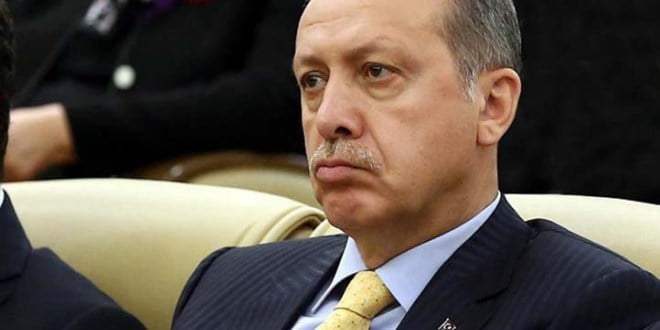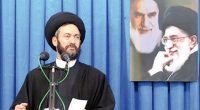Turkey’s Erdogan exploiting failed coup to crush dissent, tighten grip on power

Date posted: September 1, 2016
Frederic Puglie
After a searing summer that has already featured a failed military coup, spectacular terrorist attacks and now a new war across the border in Syria, Turkey’s cultural elite is watching with increased unease as authoritarian President Recep Tayyip Erdogan rides a wave of nationalism that they fear will be used to brand his critics as enemies of the state.
The mood is tense, with many fearing the series of crises is giving Mr. Erdogan an opening to crack down even harder.
The dramatic failure of the July 15 military plot has already resulted in the arrests and dismissals of an estimated 45,000 judges, civil servants and military and police officers. In the streets of the country’s largest city, Mr. Erdogan has issued what amounts to an undisguised warning that further dissent will not be tolerated.
Thousands upon thousands of billboards, lamppost signs and subway display ads have been decked out in the national colors of red and white, proclaiming what has become a kind of official post-putsch slogan for the Erdogan government: “We, the nation, shall never let Turkey be manipulated by coup plotters and terrorists.”
The atmosphere has led to a chilling effect for journalists and academics, many of whom are ever more careful not to publicly criticize the leader of the Justice and Development Party, known by its Turkish acronym AKP.
“Turkey has never been a functioning democracy. [But now] political polarization is extreme,” said Erdem Yoruk, a Johns Hopkins-educated sociologist at Istanbul’s Koc University. “We have lost much of our freedom of speech” as Mr. Erdogan has built “a really well-functioning propaganda apparatus.”
Through government-controlled media, Mr. Erdogan likes to portray himself as a caring and capable champion of the masses, and on Friday he put on a grandiose show to inaugurate yet another massive infrastructure project — a hallmark of his administration.
As he opened the world’s widest suspension bridge — the third link between Istanbul’s European and Asian sectors, aptly named after the 16th-century conqueror Sultan Selim the Grim — the president drew a historical arc through Turkey’s “2,200 years of state and military traditions.”
Although he made his remarks just hours after Turkish tanks entered northern Syria to attack an Islamic State-held border town, what made headlines was Mr. Erdogan’s promise to waive the bridge toll through the end of the month.
That is the kind of populist move that lies at the heart of his political success, built on what Mr. Yoruk called a “tremendously expanded welfare state.” It’s what has allowed Mr. Erdogan and his moderate Islamist party to dominate the political scene since Mr. Erdogan was first elected prime minister 13 years ago.
Despite that long dominance, however, the former Istanbul mayor has struggled to win over Turkey’s pro-Western and traditionally secularist elites, long at odds with the AKP’s less-wealthy and more-traditionalist base. He now seems to hope that the universally rejected coup will give him an opening to this segment of society, still influential in the state bureaucracy, judiciary and military.
A potential crackdown on Western-oriented secular forces in government and society presents a dilemma for the Obama administration, which is increasingly reliant on Turkey’s military in the fight against the Islamic State group in neighboring Syria. The White House announced Monday that President Obama will meet privately with Mr. Erdogan on the sidelines of the Group of 20 gathering in Hangzhou, China, that starts Sept. 4.
Nationalist mythology
The government has already built up a nationalist mythology around the failed coup, at one point going so far as to make flag carrier Turkish Airlines rename an airport facility as the “July 15 Heroes of Democracy Lounge.” On Friday, Mr. Erdogan characterized the events as the latest chapter of a history in which foreign interests have pitted “brother against brother.”
Critics say it is telling that much of the purge Mr. Erdogan ordered in the wake of the coup focused on the education system and the country’s universities, which stand accused of harboring sympathizers of U.S.-exiled cleric Fethullah Gulen, the onetime Erdogan ally who the government insists helped mastermind the coup.
The Wall Street Journal reported this month that the Education Ministry dismissed more than 27,000 educators and demanded the resignations of all university deans. Only those who can prove their loyalty are able to get their jobs back. Ankara also suspended the State Department’s Fulbright English teaching assistant program and canceled the European Union’s Jean Monnet scholarships in the weeks after the coup, the newspaper reported.
Although Mr. Erdogan has toned down proposals to lift headscarf bans and restrict alcohol sales, his Islamist background is not just for show, Mr. Yoruk said. “He is not, I think, seeking power for the sake of power,” the sociologist said. “He sees himself as the leader of the Islamic world.”
More than 20,000 teachers have been suspended from public schools, while thousands of private-school teachers have lost their jobs, The Associated Press reported Monday.
Critics say the president himself for years exploited class and ethnic divides to tighten his power, and his calls for unity are likely to fall on deaf ears even among apolitical youngsters such as Furkan Dindar, who said he blamed the government for Turkey’s prolonged political instability and backed the opposition Nationalists in the 2014 election.
Mr. Erdogan’s views are “just opposite of what Ataturk did,” the 21-year-old systems engineering student said with a reference to Mustafa Kemal Ataturk, modern Turkey’s widely revered founder who Westernized the country in the 1920s and 1930s and whose secular ideals have at times been challenged by the rise of the AKP.
The state “can’t manage religion,” Mr. Dindar said. “Everybody should lead their own religion.”
Although Mr. Erdogan has toned down proposals to lift headscarf bans and restrict alcohol sales, his Islamist background is not just for show, Mr. Yoruk said.
“He is not, I think, seeking power for the sake of power,” the sociologist said. “He sees himself as the leader of the Islamic world.”
Alireza Nader, a senior international policy analyst for the nonpartisan Rand Corp., sees parallels between the anti-intellectual, anti-Western tinge of Mr. Erdogan’s response to the coup and the passions that helped spark the Islamist uprising in Iran nearly 40 years ago.
“Erdogan has likewise used the coup — which he has described as a gift from ‘God’ — as an opportunity to dismantle Turkey’s secular state and to imprison thousands of opponents,” Mr. Nader wrote in a recent blog post for Foreign Policy. “They include a wide swath of the civil service. Indeed, it’s now clear that the Erdogan government had prepared, prior to the coup, a list of his suspected opponents throughout the government.”
Foreign players, meanwhile, have long underestimated Mr. Erdogan’s shrewdness and misjudged his international ambitions, Mr. Yoruk said. The president’s pragmatism was on display two weeks ago during a visit to St. Petersburg. His visit was less than nine months after Turkey shot down a Russian fighter jet near the Turkish-Syrian border.
“For one day, he was an enemy of [Russian President Vladimir] Putin, and now they are best friends,” Mr. Yoruk said, noting that the same holds true for Mr. Erdogan’s relationship with Syrian dictator Bashar Assad.
Unpredictable as he may be, the United States has little choice but to placate the leader of a key NATO ally — a balancing act whose complexities were on full display during Vice President Joseph R. Biden’s visit to Ankara on Wednesday.
Despite a series of protocol snubs, Mr. Biden told Turkish reporters that, “God willing, there will be enough data and evidence” to extradite Mr. Gulen, who is living in Pennsylvania.
In the midst of the Syrian refugee crisis, meanwhile, European leaders have similarly been forced to engage Mr. Erdogan and make concessions that ultimately could help cement the Turkish leader’s grip on his nation, Mr. Yoruk said.
“I believe that Erdogan is so powerful,” he said, “because everyone uses Erdogan to reach their [own] political goals.”
Source: The Washington Times , August 29, 2016
Tags: Democracy | Freedoms | Turkey |
























